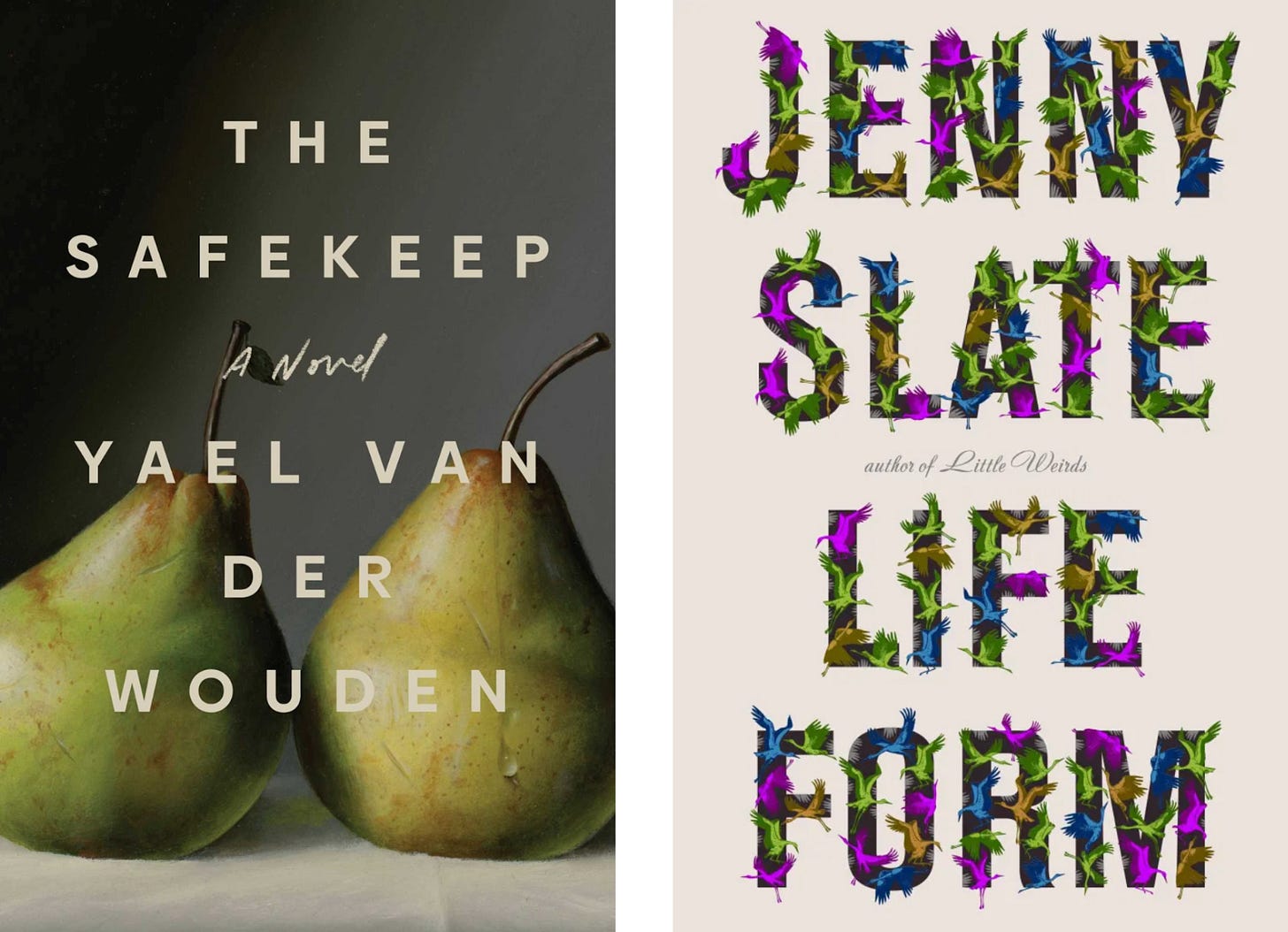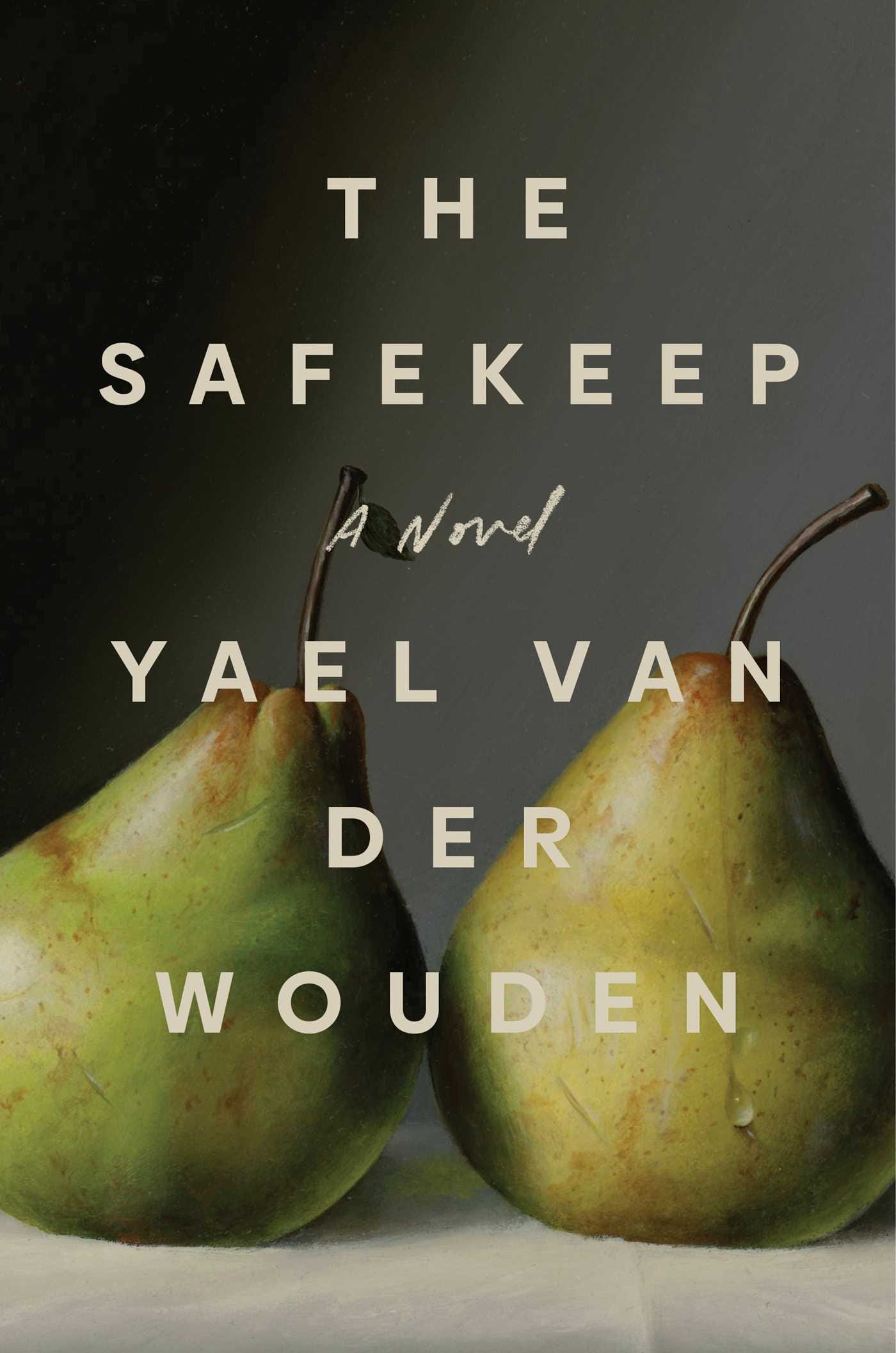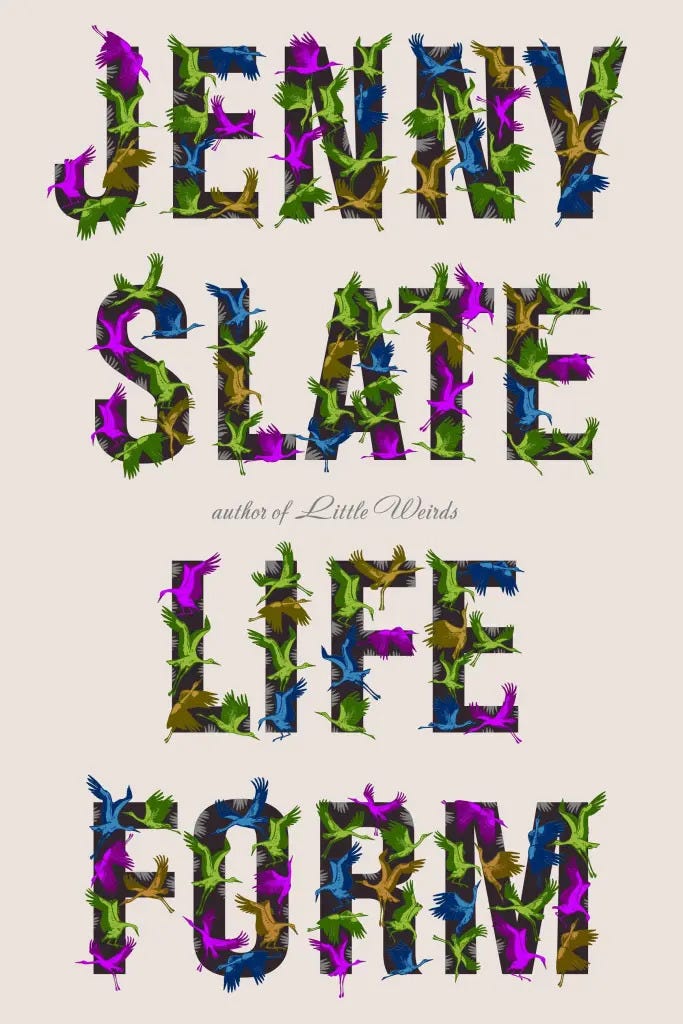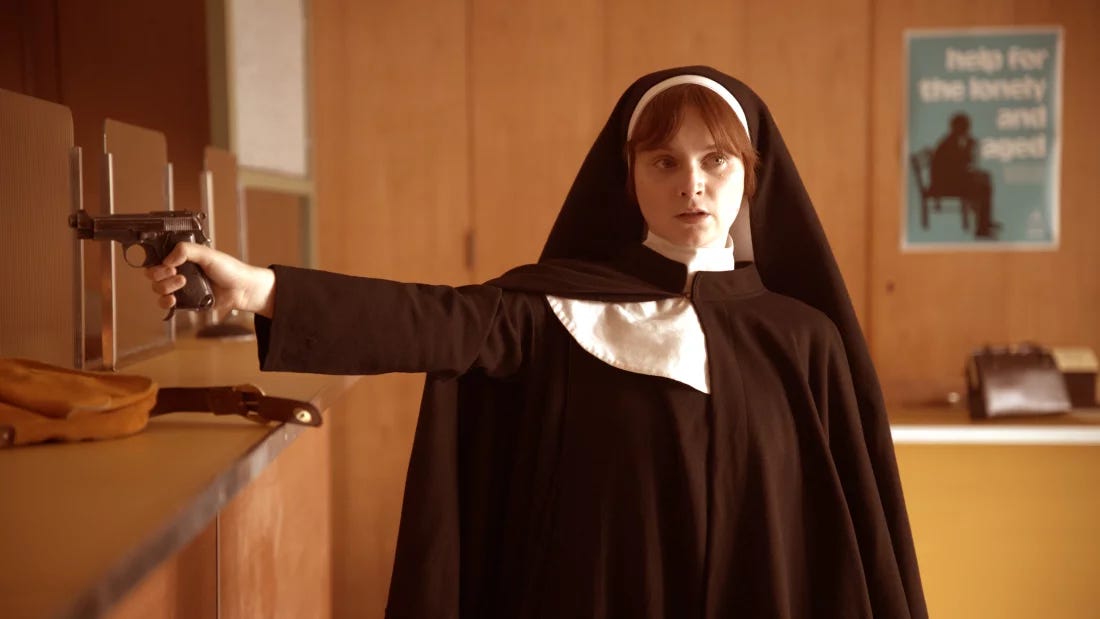what I read last week
the safekeep, lifeform
Good morning!
Exciting news in the book world this week — Samantha Harvey’s Orbital won the Booker Prize. While I have not read Orbital yet, I finished The Safekeep, which was shortlisted for the Booker Prize. I also listened to Jenny Slate’s delightfully weird memoir-in-essays, Lifeform. Let’s get into it.
What I read:
The Safekeep by Yael van der Wouden
The Safekeep is set in the summer of 1961 in a small town in Overijssel, a province in the Dutch countryside. The book opens with Isabel, who is nearly 30 and lives alone in her late mother’s home, finding a fragment of a plate that matches her mother’s collection of fine dishes. Isabel is a bit of a curmudgeon — she spends most of her time obsessively polishing her family’s silver and cataloging their possessions. When her brother, Hendrik, complains that the best items in the house are stored behind glass, Isabel responds, “They are not for touching. They are for keeping.” We soon learn that while Isabel has no plans to leave, she has no legal claim on the home. It has been promised to her other brother, Louis, should he ever start a family.
One day, Hendrik and Louis come over for dinner, and Louis brings his new girlfriend, Eva. Louis informs Isabel that he has to leave the country for a few weeks for work and that Eva will stay with her at the house. Eva is Isabel’s antithesis — she is messy, sleeps late, and is generally a type-B person in contrast to Isabel’s rigid and uptight nature. Once Louis leaves, this book becomes an intense psychological drama as the two women navigate the stifling and claustrophobic atmosphere in the house. Isabel grows suspicious of Eva and thinks she is stealing things. As the tension mounts, Isabel and Eva start a steamy love affair.
Van der Wouden’s debut is a beautifully written domestic novel with taut prose, vivid characters, and a carefully constructed plot. The home is a rich protagonist, like in Daniel Mason’s North Woods or Anne Pachett’s The Dutch House. While the ending did not surprise me, it felt earned.
This book is thematically dense — van der Wouden explores themes of home, collective and individual memory, intimacy, and sexual repression. The Safekeep is also a vehicle for van der Wouden to explore the wider failure in the postwar Netherlands to reckon with the legacy of Nazi occupation and the fate of the Dutch Jews. Isabel’s inability to move on from her late mother’s death mirrors the quiet avoidance of the war in the Netherlands. At one point, one character comments on a Jewish family who lost their home: “If they cared about it, they would have come back for it. No. They’re gone. They’re gone or they don’t care. So many are gone.” (In 2017, van der Wouden — who moved to the Netherlands from Israel in the 1990s when she was 10 years old — published an essay on the persistent antisemitism in the Netherlands.)
This book reminded me of books like Trespasses and Kairos (like a historical fiction version of Sally Rooney). I highly recommend The Safekeep to those interested in literary fiction.
Rating: 4.5/5
Genre: Historical Fiction; Messy Women
Notable prizes/book clubs/lists: Shortlisted for the Booker Prize (2024)
Page count: 272 pages
Audio: 9 hours 30 min
Movie/TV pairings: Carol, Disobedience
Food pairings: Pears
Lifeform by Jenny Slate
Lifeform is Jenny Slate’s second collection of memoir-in-essays. She published Little Weirds in 2019. Slate said she would not call Lifeform “a memoir, but it’s not fiction.”
Lifeform is divided into five parts that mirror the life phases she focuses on — Single, True Love, Pregnancy, Baby, and Ongoing. The essays are eclectic. Slate writes letters to her doctors, imaginary therapy sessions, gossip between raccoons, a graduation speech, and an alternative ending to Ghostbusters for Sigourney Weaver’s character. She writes in flowery, ornate language and blurs fantasy and reality to capture the journey and anxieties of early motherhood.
I have not read Little Weirds, so I went in expecting a somewhat straightforward essay collection in Lifeform. In hindsight, I am unsure why I did not anticipate something more strange — Slate is the voice of the endearingly odd Marcel the Shell with Shoes On. I am somewhat conflicted about Lifeform. At its best, this book is imaginatively funny and surrealistic. However, I often felt like I was reading transcribed voice notes that Slate recorded when she woke up in the middle of the night after having an odd dream. My friend described Slate’s first book as putting sprinkles on meatloaf, which also aptly describes Lifeform. Basically, this style does not always work, but I admire Slate’s creativity, and I enjoyed wading into her dreamscape.
This book is not for everyone, but I would recommend it to fans of Slate or to someone who wants to read a weirdly creative memoir.
Rating: 3/5
Genre: Memoir/Essay Collection
Page count: 240 pages
Audio: 4 hours and 57 minutes
Articles and podcasts I cannot stop thinking about:
A luxury hotel on Newfoundland’s Fogo Island
I am out of escapist TV shows, so I have been lurking in the travel sections of newspapers this week.
I recommend Patrick Raden Keefe’s Say Nothing to just about everyone. I am excited to watch the Hulu FX adaptation, which was released last night.
“The Book That Predicted the 2024 Election” on The Ezra Klein Show
This podcast episode was one of the better election 2024 discussions I listened to last week.
What I cooked:
Vietnamese skirt steak with crying tiger sauce and a cucumber side salad
Crying tiger sauce: I mainly cooked recipe-less meals this week, but I made this excellent (and simple) crying tiger sauce to serve over rice and leftover steak.
Samin Nosrat’s Vietnamese cucumber salad: This recipe is one of my go-to side salads, and it paired perfectly with the steak.









